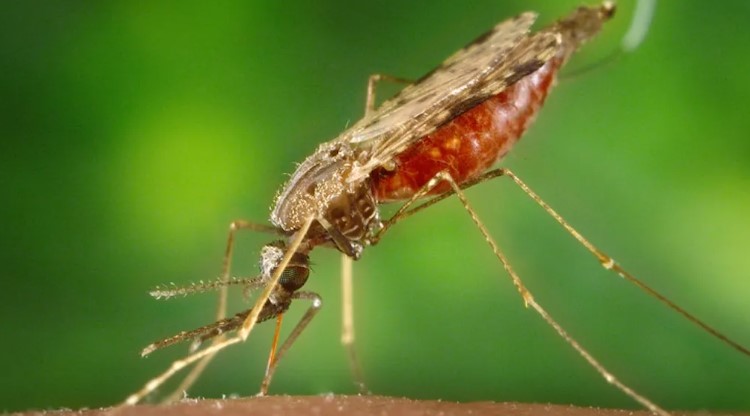Why Nigerian Senators Are Urging a New Agency to Combat Malaria

The Senate has given second reading to a bill that would create a specific agency to fight malaria in Nigeria.
Following the majority of senators' voice votes in favor of the passage, the Deputy Senate President, Barau Jibrin, who chaired the session, declared it during Thursday's plenary.
The bill was sent to the Senate committee on health for additional consideration and a public hearing after it was passed. The committee was given four weeks to submit a report.
Ned Nwoko, the senator for Delta North Senatorial District, was the sponsor of the measure, which was named "A bill for an Act to establish the National Agency for Malaria Eradication and for related matters."
Following the majority of senators' voice votes in favor of the passage, the Deputy Senate President, Barau Jibrin, who chaired the session, declared it during Thursday's plenary.
The bill was sent to the Senate committee on health for additional consideration and a public hearing after it was passed. The committee was given four weeks to submit a report.
Ned Nwoko, the senator for Delta North Senatorial District, was the sponsor of the measure, which was named "A bill for an Act to establish the National Agency for Malaria Eradication and for related matters."
Did you know? You can comment on this post! Just scroll down
It is anticipated that the planned agency will encourage cutting-edge vaccine development, effectively mobilize and manage resources, and centralize and coordinate malaria responses.
Leading a discussion on the bill, Mr. Nwoko emphasized that malaria must be addressed as a danger, not just a public health concern, which calls for the establishment of a specialized agency.
According to the World Health Organization's 2024 report, which he cited, Nigeria has the largest malaria burden in the world, accounting for almost 184,000 of the 600,000 malaria deaths that occur in Africa each year.
"It contributes to severe anemia, miscarriages, stillbirths, and infant deaths—tragic outcomes that disproportionately affect our most vulnerable citizens—and accounts for about 11% of maternal mortality in Nigeria." Malaria costs the country millions of man-hours annually, which has a negative economic impact, he said.
The National Malaria Elimination Programme (NMEP) is policy-based but underpowered, according to the senator, who criticized the current structures for not having enough funding.
Although the National Primary Healthcare Development Agency (NPHCDA) provides services, he claimed that it is underfunded and undersized.
Despite its success during the COVID-19 epidemic, Mr. Nwoko also noted that the Nigeria Centre for Disease Control (NCDC) only has a minor role in managing malaria.
"The health architecture as it exists now is inadequate. Although policy-based, the National Malaria Elimination Programme (NMEP) lacks sufficient funding. Although it provides services, the National Primary Healthcare Development Agency (NPHCDA) is underfunded and understaffed.
Leading a discussion on the bill, Mr. Nwoko emphasized that malaria must be addressed as a danger, not just a public health concern, which calls for the establishment of a specialized agency.
According to the World Health Organization's 2024 report, which he cited, Nigeria has the largest malaria burden in the world, accounting for almost 184,000 of the 600,000 malaria deaths that occur in Africa each year.
"It contributes to severe anemia, miscarriages, stillbirths, and infant deaths—tragic outcomes that disproportionately affect our most vulnerable citizens—and accounts for about 11% of maternal mortality in Nigeria." Malaria costs the country millions of man-hours annually, which has a negative economic impact, he said.
The National Malaria Elimination Programme (NMEP) is policy-based but underpowered, according to the senator, who criticized the current structures for not having enough funding.
Although the National Primary Healthcare Development Agency (NPHCDA) provides services, he claimed that it is underfunded and undersized.
Despite its success during the COVID-19 epidemic, Mr. Nwoko also noted that the Nigeria Centre for Disease Control (NCDC) only has a minor role in managing malaria.
"The health architecture as it exists now is inadequate. Although policy-based, the National Malaria Elimination Programme (NMEP) lacks sufficient funding. Although it provides services, the National Primary Healthcare Development Agency (NPHCDA) is underfunded and understaffed.
Despite its great performance during COVID-19, the NCDC is mostly ignored when it comes to malaria. Nigeria can no longer top the world in malaria mortality, notwithstanding the Presidential End Malaria Council.
"As our parasites and vectors change, so too must our institutional reaction. A changing threat cannot be addressed by a fragmented framework. To eradicate malaria in Nigeria, we require a single, cohesive organization that is supported by legislation and driven by research," he continued.
Senator Victor Umeh of Anambra Central seconded the bill's reading.
According to Mr. Umeh, malaria has long been a threat and has caused many untimely deaths.
"As our parasites and vectors change, so too must our institutional reaction. A changing threat cannot be addressed by a fragmented framework. To eradicate malaria in Nigeria, we require a single, cohesive organization that is supported by legislation and driven by research," he continued.
Senator Victor Umeh of Anambra Central seconded the bill's reading.
According to Mr. Umeh, malaria has long been a threat and has caused many untimely deaths.
“Malaria is a problem that has continued to lead to early death and incessant death among citizens of this country. Many people died in the West African sub-region, even those who came from Europe. We have continued to pay dearly because we have not addressed the problem. The modern way of addressing this is by developing vaccines,” he said.
Delta Central Senator Ede Dafinone also stressed the economic impact of the disease, saying “the number of employees administering malaria medicine is a reflection on the impact of the disease on our workforce.”
Jigawa North-west Senator Babangida Hussaini also cited WHO data, noting that over 84,000 Nigerians have died from malaria recently, describing the figures as “devastating beyond comprehension.”
Imo East Senator Ezenwa Onyewuchi lamented that Nigeria continues to account for a quarter of malaria cases in Africa.
He recalled previous summits on malaria eradication that produced little action and underscored the urgency for tangible progress.
Overview of Malaria in Nigeria
According to DOROTV, one of Nigeria's most urgent public health issues is still malaria. The nation in West Africa is responsible for the greatest number of malaria infections and fatalities worldwide.
The World Health Organization's 2024 report states that Nigeria has the highest number of malaria-related deaths in the world, with over 184,000 deaths each year. Vulnerable populations, such as pregnant women and children under five, are disproportionately affected by the illness.
The World Health Organization's 2024 report states that Nigeria has the highest number of malaria-related deaths in the world, with over 184,000 deaths each year. Vulnerable populations, such as pregnant women and children under five, are disproportionately affected by the illness.
Article Posted 22 Days ago. You can post your own articles and it will be published for free.
No Registration is required! But we review before publishing! Click here to get started
One Favour Please! Subscribe To Our YouTube Channel!
468k
Cook Amazing Nigerian Dishes, Follow Adorable Kitchen YouTube Channel!
1.1m
Like us on Facebook, Follow on Twitter
React and Comment
Click Here To Hide More Posts Like This
Watch and Download Free Mobile Movies, Read entertainment news and reports, Download music and Upload your own For FREE.
Submit Your Content to be published for you FREE! We thrive on user-submitted content!
But we moderate!

















